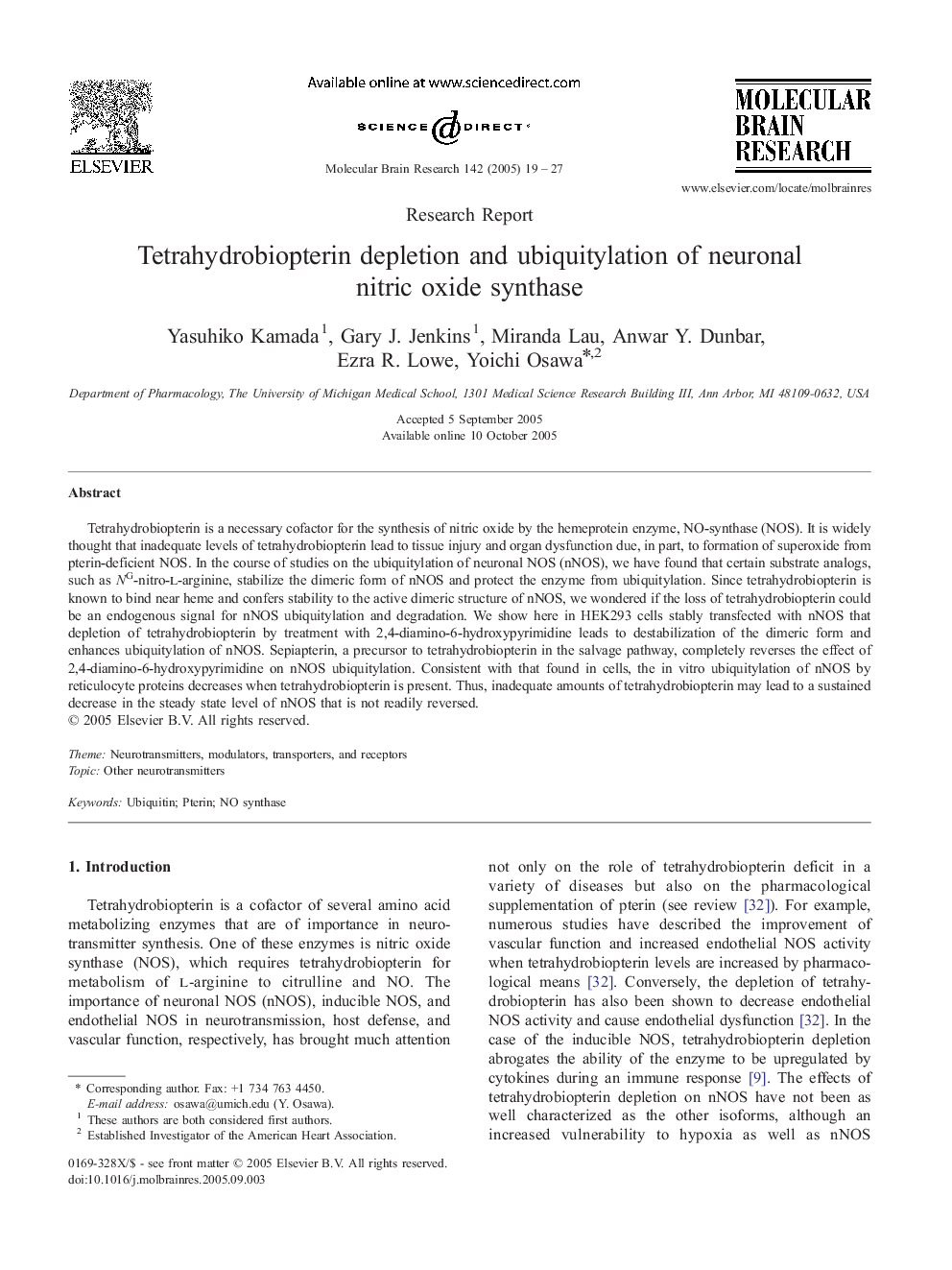| Article ID | Journal | Published Year | Pages | File Type |
|---|---|---|---|---|
| 9410570 | Molecular Brain Research | 2005 | 9 Pages |
Abstract
Tetrahydrobiopterin is a necessary cofactor for the synthesis of nitric oxide by the hemeprotein enzyme, NO-synthase (NOS). It is widely thought that inadequate levels of tetrahydrobiopterin lead to tissue injury and organ dysfunction due, in part, to formation of superoxide from pterin-deficient NOS. In the course of studies on the ubiquitylation of neuronal NOS (nNOS), we have found that certain substrate analogs, such as NG-nitro-l-arginine, stabilize the dimeric form of nNOS and protect the enzyme from ubiquitylation. Since tetrahydrobiopterin is known to bind near heme and confers stability to the active dimeric structure of nNOS, we wondered if the loss of tetrahydrobiopterin could be an endogenous signal for nNOS ubiquitylation and degradation. We show here in HEK293 cells stably transfected with nNOS that depletion of tetrahydrobiopterin by treatment with 2,4-diamino-6-hydroxypyrimidine leads to destabilization of the dimeric form and enhances ubiquitylation of nNOS. Sepiapterin, a precursor to tetrahydrobiopterin in the salvage pathway, completely reverses the effect of 2,4-diamino-6-hydroxypyrimidine on nNOS ubiquitylation. Consistent with that found in cells, the in vitro ubiquitylation of nNOS by reticulocyte proteins decreases when tetrahydrobiopterin is present. Thus, inadequate amounts of tetrahydrobiopterin may lead to a sustained decrease in the steady state level of nNOS that is not readily reversed.
Keywords
Related Topics
Life Sciences
Neuroscience
Cellular and Molecular Neuroscience
Authors
Yasuhiko Kamada, Gary J. Jenkins, Miranda Lau, Anwar Y. Dunbar, Ezra R. Lowe, Yoichi Osawa,
